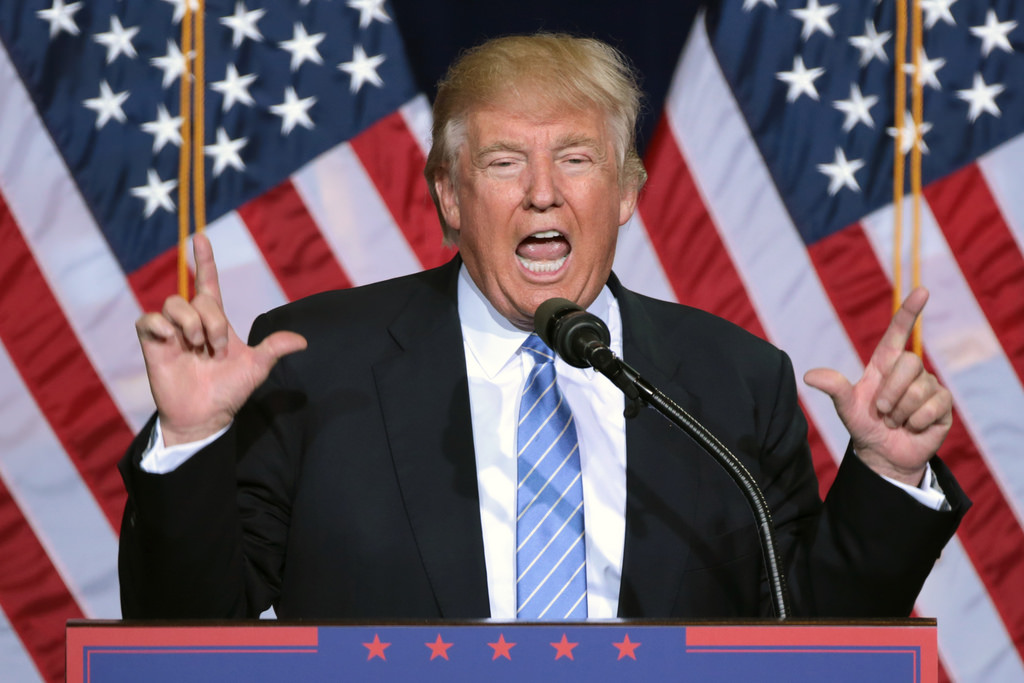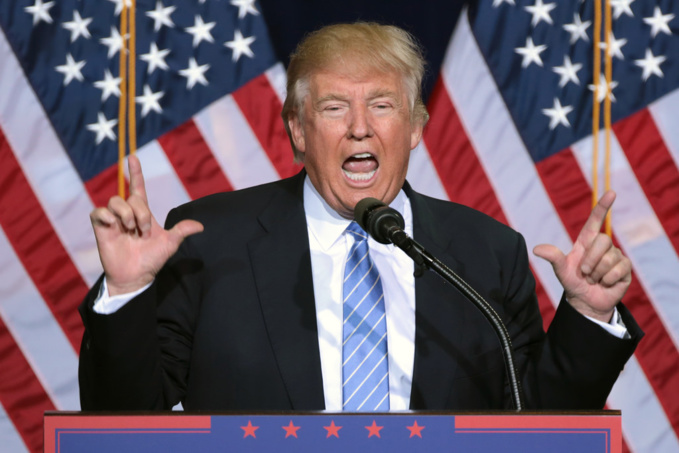Uncertainty about US economic policy under Barack Obama was higher than in the previous quarter of a century. This is evidenced by an index, which tracks reference to the words "uncertain" and "uncertainty" in articles of leading newspapers on economic policy. It would seem that now there is more confidence in the future: the US economy is growing steadily, the world economy also feels confident, and the White House wants to help the business by softening regulation. But this is not true.
Uncertainty has grown even more under President Donald Trump, although Obama's presidency coincided with a deep recession, salvation of American automakers, mixed monetary policy of the US Federal Reserve, a slow economic recovery and fierce debate between Democrats and Republicans over the budget.
Although the value of the index depends on how the media covers economic issues at different times, it is quite informative. The average value of the index for the first 13 months of Trump's presidency was 140.2 points, the same period of Obama's presidency gathered 126 points. The value for its full two terms reached 134.7 points. In January and February 2018, the index was 127; meanwhile its average value in 1985-2010 was much less - 100.
"Obama was President at a time when emergency measures were required. There are incredibly favorable economic conditions during Trump’s reign, so the level of uncertainty of economic policy would have to be very low, " Bloom notes. In his opinion, the reverse situation can now partly be explained by a strong change in Washington's policy and partly by a chaotic decision-making process.
Examples of current uncertainty are new import duties on steel and aluminum, as well as on a number of goods from China; the subsequent withdrawal of some countries from the effects of duties on steel and aluminum; the government's decision to block, for reasons of national security, the takeover by Singapore's Broadcom of the American manufacturer of Qualcomm chips; as well as Washington's attempts to prevent the merger of AT & T and Time Warner.
In addition, last week Amazon shares fell sharply by 4% after Trump criticized the company's business model and said that it pays little tax. Also, quotes of Facebook shares in March decreased by 10% due to concerns of market participants that the authorities can tighten regulation of the technology sector due to the recent scandal around the company. "It was like a punch in the stomach for investors," says Daniel Ives of GBH Insights.
Shares of Boeing, which investors consider vulnerable to the war between the US and China, fell by 9% in March.
Theoretically, economic uncertainty contributes to a reduction in investment and hiring of employees and a slowdown in GDP growth. However, business increased investment by 6% in 2017, while they grew by an average of 3% per year under Obama. In addition, last year, economic growth accelerated to 2.3% from 1.5% in 2016, and unemployment fell to 4.1%, a low since 2000.
Trump's supporters can explain the uncertainty by consequences of changes that he promised, for example, a more stringent trade policy. Nevertheless, concerns about Trump's policy are "unnecessary costs" for the economy, Bloom says.
There is no complete economic policy behind Trump's actions, and his next steps are hard to predict. The protectionist measures in foreign trade, about the need for which Trump spoke during the election campaign, cannot explain the situation with Qualcomm, AT&T and Amazon, and the fact that Washington prefers certain industries, as Japan did in the 1980s and 1990s. "[Trump] chooses winners and losers," says Matthew Slaughter, dean of the Tuck School of Business at Dartmouth College.
source: wsj.com
Uncertainty has grown even more under President Donald Trump, although Obama's presidency coincided with a deep recession, salvation of American automakers, mixed monetary policy of the US Federal Reserve, a slow economic recovery and fierce debate between Democrats and Republicans over the budget.
Although the value of the index depends on how the media covers economic issues at different times, it is quite informative. The average value of the index for the first 13 months of Trump's presidency was 140.2 points, the same period of Obama's presidency gathered 126 points. The value for its full two terms reached 134.7 points. In January and February 2018, the index was 127; meanwhile its average value in 1985-2010 was much less - 100.
"Obama was President at a time when emergency measures were required. There are incredibly favorable economic conditions during Trump’s reign, so the level of uncertainty of economic policy would have to be very low, " Bloom notes. In his opinion, the reverse situation can now partly be explained by a strong change in Washington's policy and partly by a chaotic decision-making process.
Examples of current uncertainty are new import duties on steel and aluminum, as well as on a number of goods from China; the subsequent withdrawal of some countries from the effects of duties on steel and aluminum; the government's decision to block, for reasons of national security, the takeover by Singapore's Broadcom of the American manufacturer of Qualcomm chips; as well as Washington's attempts to prevent the merger of AT & T and Time Warner.
In addition, last week Amazon shares fell sharply by 4% after Trump criticized the company's business model and said that it pays little tax. Also, quotes of Facebook shares in March decreased by 10% due to concerns of market participants that the authorities can tighten regulation of the technology sector due to the recent scandal around the company. "It was like a punch in the stomach for investors," says Daniel Ives of GBH Insights.
Shares of Boeing, which investors consider vulnerable to the war between the US and China, fell by 9% in March.
Theoretically, economic uncertainty contributes to a reduction in investment and hiring of employees and a slowdown in GDP growth. However, business increased investment by 6% in 2017, while they grew by an average of 3% per year under Obama. In addition, last year, economic growth accelerated to 2.3% from 1.5% in 2016, and unemployment fell to 4.1%, a low since 2000.
Trump's supporters can explain the uncertainty by consequences of changes that he promised, for example, a more stringent trade policy. Nevertheless, concerns about Trump's policy are "unnecessary costs" for the economy, Bloom says.
There is no complete economic policy behind Trump's actions, and his next steps are hard to predict. The protectionist measures in foreign trade, about the need for which Trump spoke during the election campaign, cannot explain the situation with Qualcomm, AT&T and Amazon, and the fact that Washington prefers certain industries, as Japan did in the 1980s and 1990s. "[Trump] chooses winners and losers," says Matthew Slaughter, dean of the Tuck School of Business at Dartmouth College.
source: wsj.com



















